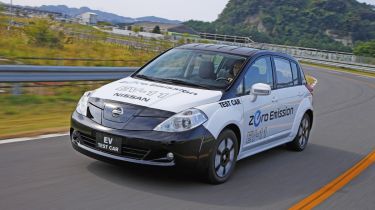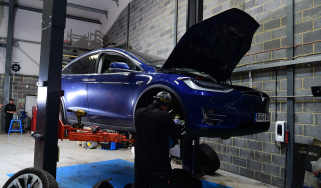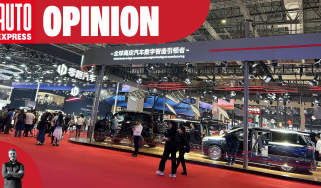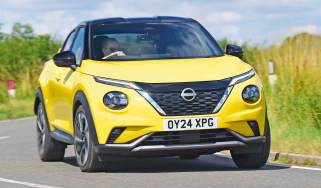Nissan Leaf
Our exclusive verdict on electric Focus rival
The Leaf shows that buyers won’t have to compromise on comfort or performance if they want zero emissions. It remains to be seen if a charging infrastructure will be in place by the time it goes on sale. But with the cost of battery technology falling, and the Government promising a discount of £5,000 on the price, this looks a realistic alternative.
Here’s a Leaf you won’t have seen before this autumn! It’s Nissan’s electric family car, which will go on sale in the UK at the end of 2011 – and Auto Express has driven it already.
We tried the zero-emissions machine in Tokyo under the guise of a prototype Tiida hatch. But as we revealed previously, when the Leaf hits dealers here in less than 18 months’ time, it will look very different.
An all-new platform allows the car’s lithium-ion batteries to be mounted under the rear seats, so there’s no impact on cabin space. Up front is an electric motor that delivers 108bhp and 280Nm of torque to the front wheels.
Range is limited to 100 miles and a full recharge takes eight hours from a normal mains socket. With a 400V supply, the car can be powered up to 80 per cent of its capacity in only half-an-hour.
As its charging system is in constant contact with a central computer, owners get a text message when the car is topped up – and if they have an Apple iPhone, they can start or stop the process remotely.
Jump inside, select drive from the switch on the centre console and you’re met with silence. But all that torque is available from zero rpm, so acceleration is impressive – Nissan claims 0-60mph in around 10 seconds.
And although response tails off a little at speed, our model was happy to cruise at 70mph. Around bends it handles safely, while strong brakes stop it fast.
It all adds up to a family car that’s ideal for short journeys – Nissan says 90 per cent of UK drivers do less than 35 miles a day. The problem is the lack of a charging infrastructure to give owners the same freedom as those of conventional cars.
Nissan and Renault are in talks with 30 governments, including Britain’s, to ensure this changes within the next few years.







